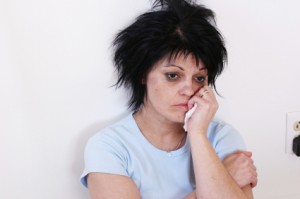Opiate Addiction Recovery

Opiate addiction recovery can help you through the painful withdrawal symptoms.
Opiate addiction can take many forms including an addiction to heroin, addiction to morphine or an addiction to one of many prescription medications such as Lortab, Oxycontin, or Roxycontin. Unfortunately, opiate addiction is not only very dangerous, the recovery process that accompanies an opiate addiction is also very dangerous and can be difficult to deal with. The painful effects of opiate withdrawal cause many people to relapse multiple times when they are attempting to recovery from an opiate addiction but with the help of opiate addiction recovery centers help is possible and a full recovery from this devastating addiction can be made.
Opiate Recovery: The Opiate Detox Process
Opiate detox begins essentially within just a few hours after an individual takes their last dose of opiates. The abrupt quitting of any opiate comes with many negative withdrawal symptoms which are usually the primary reason that an addict begins using again. If you are addicted to opiates, chances are you want to stop using and you may even try to quit but every time you try you are faced with the challenges of trying to cope with the painful, uncomfortable and difficult to deal with withdrawal symptoms that cause you to fix the problem the only way you know how—by using more opiates.
Opiate detox is the most vital first step of the opiate recovery process. It is during the opiate detox process that an individual can overcome the physical dependence that they have on opiates and prepare for the psychological healing that will come during the next phases of recovery. Opiate detox is complete when an addict is completely free from opiate withdrawal symptoms and no longer has any physical dependence on this dangerous drug.
Opiate Recovery: Healing Psychologically
Once the detox is complete, individuals will require long term healing for the psychological dependence and other issues that result from opiate addiction. Various types of treatment exist to help an individual overcome the psychological aspects of opiate addiction which may include anxiety, trauma, spiritual and emotional upset and various other concerns and conditions.
Counseling at opiate treatment centers help the individual in a number of ways. Individual counseling sessions can help the addict to learn why they used drugs, what potential triggers they face in life and also how to overcome various aspects of past or present emotional trauma. In addition to individual counseling, group counseling at opiate recovery centers help addicts by providing them with a safe place where they can work with their peers through the addiction recovery process. Group counseling has been proven to be very effective at helping individuals who suffer from opiate addiction.
Opiate Recovery: Life After Treatment for Opiate Addiction
Once an addict completes treatment for opiate addiction they are armed with the tools that they need to live life free from opiates. Opiate addiction treatment programs provide addicts with the education, guidance and support that they need to learn how to maintain their own sobriety, cope with potential triggers and get help in the future if they feel that they may relapse and begin using opiates again. Opiate recovery is a lifelong process but life after opiate addiction treatment can be both rewarding and fulfilling as the addict lives sober and regains control.